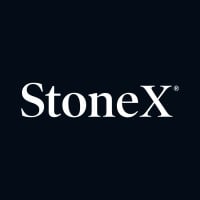The modern markets feature many tradable products, including stocks, cryptocurrencies, forex pairs, and futures. One of the most popular strategies for engaging these different asset classes is day trading.
In this blog, we’ll define day trading and the strategy’s nuances in relation to product and market.
What Is Day Trading?
The US Financial Industry Regulatory Authority (FINRA) defines a day trade as the “purchasing and selling or the selling and purchasing of the same security on the same day in a margin account.”
Day trading is a strategy that involves opening and closing positions in the live market on intrasession timeframes. Many market participants favor day trading because it offers several advantages:
-
The exposure to systemic risk is vastly reduced over longer-term strategies.
-
In derivatives, margin requirements for intraday positions are lower than for overnight positions.
-
A vast number of trade setups develop each session.
-
The opportunity to generate steady cash flows.
Although it’s technically possible to day trade any security, product, or market, different asset classes have unique characteristics. Functionally, the best markets for day trading are those that feature high degrees of liquidity and volatility. Given these two attributes, traders are able to execute positive-expectation, short-term trades with maximum efficiency (minimal slippage, tight bid/ask spreads).
Day Trading Different Asset Classes
When day trading, all markets aren’t equal. Pricing, margin requirements, and regulations are factors that impact different asset classes in distinct ways. Let’s take look at a few of the most important considerations to make for day trading shares, crypto, forex, and futures contracts.
Stocks
Stocks are great securities for executing intraday strategies. A diversity of alternatives make corporate shares the first choice for many day traders. Between the NASDAQ and NYSE, traders can choose among more than 6,000 public listings. Given this diversity, there is always a liquid, volatile stock ideal for day trading.
However, there are limitations on how often you can day trade stocks. The SEC Pattern Day Trader Rule designates anyone that executes four or more day trades within five business days a “pattern day trader.” This designation requires the trader to boost their minimum account balance to $25,000 on every day that they make trades.
Cryptocurrency
Cryptocurrencies are among the fastest-growing markets in finance, and they’re still in their infancy. Regulations are few, and there are no restrictions on the application of intraday strategies.
Crypto volatility and liquidity make them a target-rich environment for short-term traders. The market is open 24/7/365 and features a wide range of coins, stablecoins, and altcoins.
Forex
The forex market is the largest market in the world. Day traders flock to the forex market due to the availability of leverage, lack of intraday restrictions, and reduced margin requirements. Also, there’s an array of products to choose from, including global major, minor, and exotic pairs.
The forex market is open 24/5 with only a few holiday closures per year. Short-term fundamental traders often favor the forex market due to its sensitivity to scheduled economic reports and events.
Futures
Futures offer participants the ability to engage the world’s most popular markets in a leveraged, unrestricted capacity. Different asset classes — such as commodities, equities indices, bonds, and currency — are all readily available for trading.
Day trade margins for futures contracts typically run between 35 to 12% of the contract’s notional value, ensuring extensive leveraging options. In addition, the calling card of the futures markets is volatility. The combination of leverage and volatility makes short-term trading strategies attractive to risk-receptive market participants.
Interested in Trading Micro Bitcoin Futures?
It’s no secret that cryptocurrencies and futures are a few of the best environments for day trading. Why not combine the two while also benefitting from unparalleled granularity?
To learn more about crypto futures, check out the StoneX on-demand webinar Getting Started With Micro Bitcoin Futures. The name says it all! If Micro Bitcoin futures pique your interest, level up your crypto IQ here before you place another day trade.
